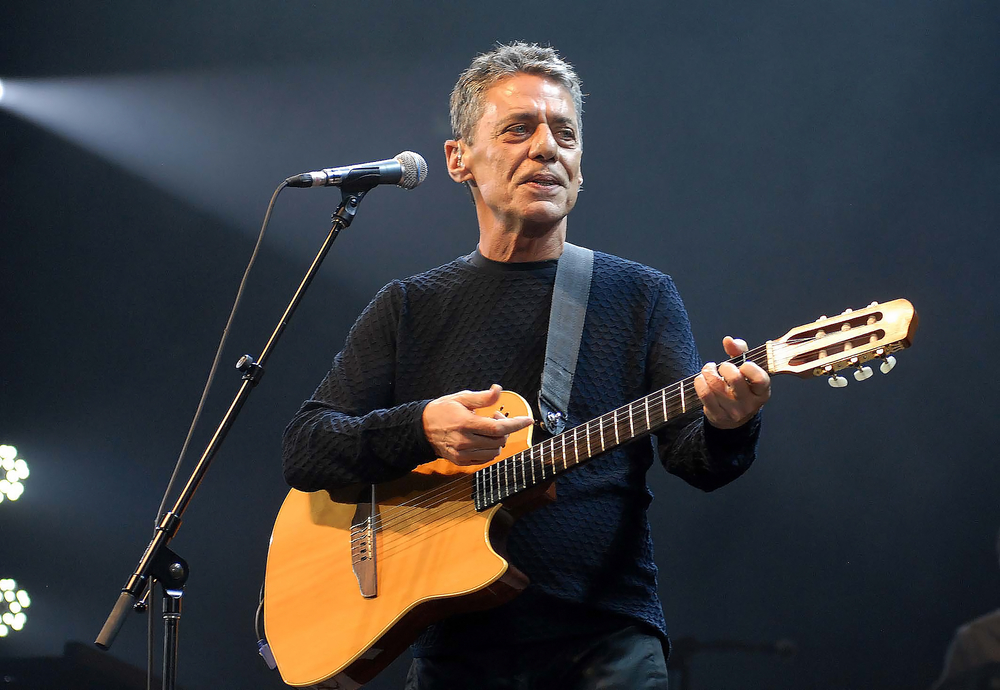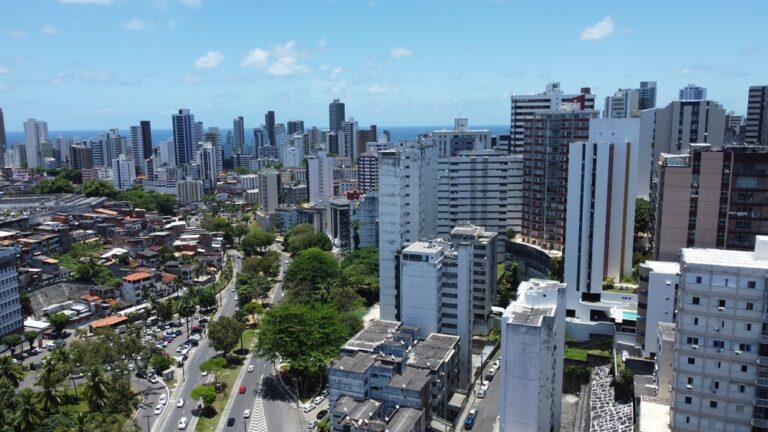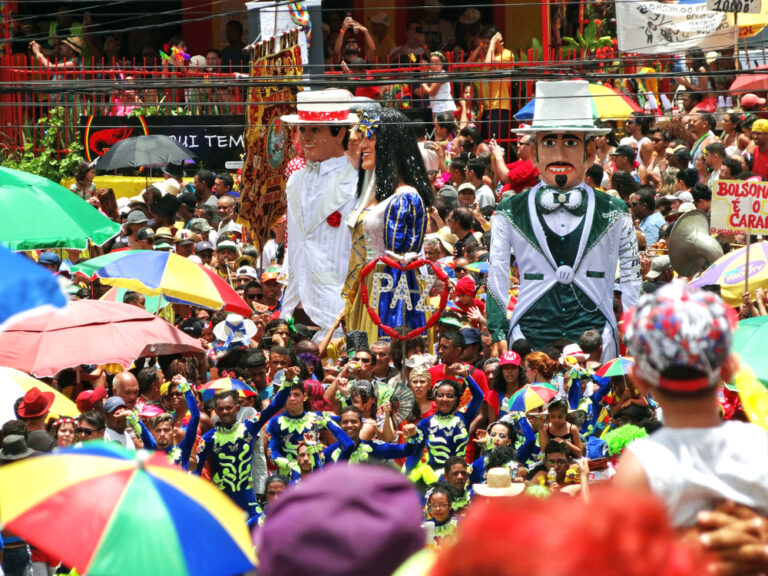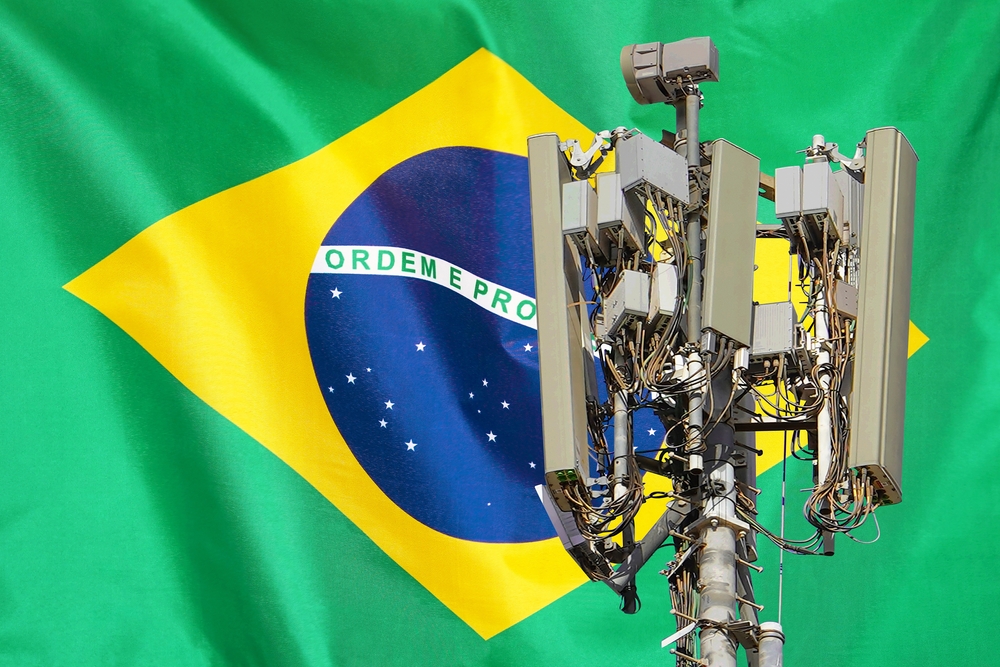Table of Content
ToggleIntroduction
Chico Buarque is a multifaceted Brazilian icon who has left an indelible mark on the cultural tapestry of Brazil through his music, literature, and socio-political activism. With a career spanning more than five decades, Buarque has become synonymous with the evolution of Brazilian art, particularly within the genres of MPB (Música Popular Brasileira) and samba. His eloquent lyrics and melodies resonate with themes of love, social justice, and political defiance, reflecting the complex history and emotions of his homeland.
Beginning his journey in the vibrant 1960s, Buarque’s emergence coincided with a period of great turbulence and creativity in Brazil. Throughout his career, his works have gained acclaim not only for their aesthetic quality but also for their poignant commentary on Brazilian society. From the literary finesse evident in his novels and plays to the profound social messages woven into his music, Buarque’s contributions have earned him both national and international recognition, cementing his status as one of Brazil’s most influential artists.
Key Takeaways
- Chico Buarque’s career reflects a strong connection to political movements and social issues in Brazil.
- His creative contributions span music, literature, and theater, highlighting his versatility as an artist.
- Buarque is recognized both in Brazil and internationally for his profound impact on cultural and political discourse.
Early Life and Background
Chico Buarque, born Francisco Buarque de Hollanda, is a pivotal figure in Brazilian music and literature. His formative years set the stage for a lifetime of artistic contributions, deeply influenced by his family’s cultural involvement and the sociopolitical climate of Brazil.
Family Heritage
Chico Buarque was born on June 19, 1944, in Rio de Janeiro. He hails from a prominent Brazilian family, with a lineage enriched by arts and politics. His father, Sérgio Buarque de Hollanda, was a celebrated historian and journalist, a detail which positioned Chico within an intellectually stimulating environment from a young age. This fusion of cultural and political discourse within his home undoubtedly carved the initial paths for his artistic journey.
Early Influences
Growing up in São Paulo, Chico was surrounded by the Brazilian intelligentsia, exposing him to a wealth of cultural experiences that shaped his perspectives. The environment nurtured his creativity and he began writing music in his teens. The city’s vibrant music scene during the 1960s, characterized by a surge in Brazilian Popular Music (MPB), provided a fertile ground for developing Chico’s budding talents. His encounters with various forms of Brazilian artistic expressions, from samba to bossa nova, played a crucial role in his decision to pursue a career in music.
Musical Career
Chico Buarque’s musical career is marked by influential albums, evolving styles, and noteworthy hits that have cemented his place in Brazilian music history. Buarque is recognized for his contributions to genres such as samba and MPB (Música Popular Brasileira), and his work as a composer and songwriter has been pivotal in the development of Brazilian music.
First Albums
Chico Buarque stepped into the spotlight with his 1966 debut album, featuring the song “A Banda,” which quickly turned into a national sensation. His early work in the bossa nova tradition showcased his sophisticated lyrical abilities and a keen ear for melody.
Evolution of Music Style
Over time, Buarque’s style evolved from the gentle waves of bossa nova to a more robust and reflective approach seen in MPB. Albums like “Construção” demonstrated his growth, merging poetic lyrics with complex melodies and arrangements. Buarque’s music often addressed social and political issues, subtly critiquing the Brazilian military government.
Major Hits
Buarque’s discography is adorned with major hits that resonate with audiences across generations. The theatrical production “Roda Viva” is among his critical triumphs, as it not only incorporated his music but also conveyed a potent message through its performances. Other standout hits include songs like “Construção,” which remains one of the most celebrated pieces in Brazilian music for its innovative structure and depth of content.
Literary Works
Chico Buarque is a renowned Brazilian writer and poet whose literary contributions include a variety of novels that combine intricate storytelling with social and political commentary.
Novels
Buarque’s foray into the novel genre has garnered critical acclaim. “Estorvo”, his first novel, explores the psyche of a man who is trying to evade unidentified persecutors, reflecting the author’s finesse in capturing urban chaos and personal crisis. Another significant work is “Budapeste”, a novel that deals with themes of identity, authorship, and the complexities of language, engaging readers with its narrative centered on a ghostwriter’s experiences in Budapest. The pull of this story is so strong that it radiates interest even beyond its primary audience. His third novel, “Leite Derramado”, unfolds as a narrative by an old man lying in a hospital bed, weaving through generations of Brazilian history, thereby etching Buarque’s reputation as a chronicler of his nation’s past and present.
Poetry
Buarque’s poetry, often intertwined with his song lyrics, showcases his ability to mirror the social landscape of Brazil through evocative language and rhythm. His poems echo the struggles and injustices faced by the common people, solidifying his role as a pivotal figure not only in Brazilian music and literature but also in the cultural and political tapestry of the country.
Theater and Film
Chico Buarque, a prominent Brazilian artist, has made significant contributions to both theater and film, combining his distinctive musical talents with a flair for dramatic storytelling.
Plays
Chico Buarque’s theatric pursuits capture crucial societal concerns and mirror his innovative spirit. As a playwright, Buarque’s work stands out for its evocative narratives and powerful music compositions. “Ópera do Malandro”, a notable play, takes inspiration from John Gay’s “The Beggar’s Opera” and Bertolt Brecht’s “Threepenny Opera,” tailoring the narrative to reflect Brazilian reality. Calabar, co-written with Ruy Guerra, delves into historical themes, while his musical “Quando o Carnaval Chegar” intertwines with the theatrical realm, showcasing the festivities and cultural vibrancy of Brazil. His plays are acclaimed for their intricate character development and incisive social commentary, making them milestones in Latin American theater.
Cinema Contributions
Beyond the stage, Chico Buarque’s involvement in cinema carries his theatrical themes into a different medium. Evident through his cinematic contributions, Buarque often collaborates with filmmakers to provide a musical dimension to films. The emotional resonance of his songwriting extends to his film work, which often exposes audiences to a blend of music and narrative that is both entertaining and thought-provoking. His creative range has influenced Latin American cinema, with productions benefiting from his artistic input, as seen in his role in shaping the soundscape of “Cinema Novo.”
Political Influence and Activism
Chico Buarque employed his musical talents to challenge the repressive controls of the Brazilian military dictatorship, becoming a symbol of resistance and voice for social change. His compelling lyrics and melodies carried powerful messages that criticized governmental policies and advocated for freedom of expression.
Resistance to Censorship
During a time when government censors imposed strict controls on artistic expression, Chico Buarque ingeniously navigated the tight constraints, utilizing metaphors and allegories to evade the sharp eyes of censorship. Songs like “A pesar de você“ (“In spite of you”) became anthems of peaceful resistance, serving as a source of encouragement and resilience. His evasion of censorship was a bold act that revealed the extent of his political influence.
Social Commentary in Works
Buarque’s socio-political influence extended beyond mere resistance to censorship. His song “Cálice“ (“Chalice”) exemplifies his craft of embedding critical commentary on social injustices and government oppression within his music. This song, in particular, showcases Buarque’s adept use of language to craft double meanings, speaking against the human rights violations during the authoritarian government. Amidst apesar de você (“despite you”), a phrase repeated in his songs, he remained resolute in his admonishment of political and social restraints.
Collaborations and Partnerships
Chico Buarque is a prominent figure in Brazilian music and literature, known for his significant collaborations with fellow musicians and composers. His partnerships have enriched Brazilian musical history and have often crossed cultural and linguistic boundaries.
Musical Collaborations
Chico Buarque’s musical collaborations have been a testament to his versatility and influence in Brazilian music. He has worked with a plethora of notable artists, contributing to a rich tapestry of sounds that echo Brazil’s vibrant culture.
Tom Jobim: The collaboration between Chico Buarque and the esteemed composer Tom Jobim resulted in the creation of timeless classics, blending samba and bossa nova with lyrical poetry.
Caetano Veloso: His collaborations with Caetano Veloso are marked by a fusion of political awareness and musical innovation, showcasing their mastery in songwriting and performance.
Gilberto Gil: Buarque and Gilberto Gil’s joint efforts brought to the forefront a blend of traditional rhythms and contemporary sounds, which has been influential in shaping the music of Brazil.
João Gilberto: By working with João Gilberto, Chico Buarque was able to contribute to the evolution of bossa nova, adding a distinctive narrative depth to the genre.
Vinicius de Moraes: The pair’s collaboration honored the poetic lyricism of de Moraes and Buarque’s keen sense for melody, producing songs that are deeply embedded in the soul of Brazilian music.
Milton Nascimento: A partnership with Milton Nascimento allowed for an exploration into the realms of MPB (Música Popular Brasileira), a genre that both artists have helped define throughout their careers.
Ennio Morricone: The collaboration with the Italian composer Ennio Morricone expanded Chico Buarque’s reach beyond Brazilian borders, illustrating the universal appeal of his music and lyrics.
Engaging in these partnerships, Chico Buarque has consistently showcased his ability to collaborate across different musical styles and cultural spheres, solidifying his legacy not just as a musician, but as a global artist.
Recognition and Awards
Chico Buarque has earned a multitude of awards throughout his career, both within his native Brazil and internationally. His work has been acknowledged for its profound cultural impact and artistic merit.
National
- Prêmio Jabuti: Chico Buarque has been honored with the prestigious Prêmio Jabuti, a testament to his exceptional contributions to Brazilian literature and music.
- National Song Festival Award: This coveted award was bestowed upon Buarque, further solidifying his position as a renowned lyricist and composer in Brazil.
The following two awards are particularly significant:
Camões Prize (Prémio Camões): Considered one of the most important literary awards in the Portuguese-speaking world, this prize is a testament to an author’s outstanding body of work. Though Chico Buarque primarily gained recognition for his musical endeavors, his literary pursuits have not gone unnoticed.
Rolling Stone: Recognized by this well-established magazine, Buarque’s influence extends into the realm of popular culture and media.
International
- LATIN GRAMMYs®: Buarque has also taken home Latin GRAMMYs®, evidencing his widespread acclaim and the international resonance of his music.
His ongoing influence in music and literature is evident through the array of accolades that spans both national and international recognition.
Discography and Performances
Chico Buarque’s career is adorned with a prolific discography highlighted by enduring albums and memorable live performances that have anchored his reputation within Brazilian popular music. His songs often contain a mix of political and poetic elements, with performances that have transcended cultural boundaries through various international tours.
Album Releases
Over his career, Chico Buarque has released an impressive array of albums that showcase his influence on Brazilian pop. From politically charged lyrics to sweeping ballads, his discography spans over 47 albums, including notable works such as “Chico Canta,” a display of his narrative storytelling through music. Highlights include:
- Caravanas (2017): This recent album is a testament to his ability to remain relevant in Brazil’s dynamic music scene.
Live Performances
Buarque’s live performances are captivating, characterized by the emotion he brings to each rendition of his songs. He has a unique presence on stage that engages his audience deeply, offering more than just music but a powerful cultural experience. Noteworthy performances include:
- Brazilian Television Talk Shows: His appearances on television in the 1960s were a critical part of his career, introducing his definitive performances to a broader audience.
International Tours
Buarque’s international influence is significant, with tours that have taken him beyond Brazilian borders. Despite facing political adversity, including a period of exile, his music resonated globally, as he shared Brazilian culture through songs laden with social commentary. This expanded his following and solidified his role as a cultural ambassador. Some tour details:
- Exile Period: Forced to leave Brazil to avoid censorship, he continued to perform internationally, spreading his music and message across continents.
Influence on Brazilian Culture
As a seminal figure in Música Popular Brasileira (MPB), Chico Buarque has left an indelible mark on Brazilian culture. His work captures the socio-political landscape and the vibrant spirit of Brazil.
Cultural Reflections
Chico Buarque’s music serves as a mirror to Brazil’s society, reflecting its complexities, challenges, and the resilience of its people. He has been particularly adept at capturing the mood of the nation during periods of political unrest, documenting cultural shifts and expressing the zeitgeist through his lyrics. Each album acts as a historical piece, shedding light on the cultural reflections of Brazil.
Impact on MPB
As a Brazilian singer-songwriter, Buarque has significantly shaped the genre of Brazilian popular music. He has enriched MPB by blending traditional sounds with contemporary issues, pioneering a distinct style that resonates with a wide audience. His distinctive approach has influenced many other artists, and his songs are celebrated as quintessential examples of Brazilian musical artistry. His contributions have solidified MPB’s status both nationally and internationally, underscoring its cultural importance.
Personal Life
Chico Buarque, a renowned Brazilian songwriter and novelist, has a personal life that is deeply intertwined with Brazilian culture and history. His family background and extracurricular pursuits offer a glimpse into the man behind the music and literature that have captivated audiences worldwide.
Family
Chico Buarque was born into a highly cultured and politically engaged family. His father, Sérgio Buarque de Holanda, was a prominent historian and journalist, while his mother, Maria Amélia Cesário Alvim, was a skilled painter and pianist. Among his siblings are the singer Miúcha and the politician Ana de Hollanda. Buarque was married to actress Marieta Severo, with whom he has three daughters.
Other Pursuits
Apart from his celebrated musical and literary career, Buarque is also known for his passion for football, often seen as a reflection of Brazilian culture’s dedication to the sport. Despite his fame, he has maintained a relatively low profile regarding his personal hobbies and interests, focusing instead on his artistic endeavors.
Legacy and Continuing Impact
Chico Buarque’s work has resonated profoundly through Brazilian culture, with his songs echoing against the backdrop of political upheaval and his novels weaving intricate layers of narrative complexity. He stands as a monumental figure in both music and literature, shaping the cultural fabric of Brazil.
Musical Influence
Chico Buarque emerged during a time when Brazil was under a military government, using his music as a form of resistance and commentary. His musical craftmanship, frequently compared to figures like Bob Dylan for its lyrical depth, dealt with themes of social and political import, gently enveloping his criticisms in melodic subtlety. Artists such as Elis Regina and Geraldo Vandré shared his tendency for dissent through art, though Buarque’s usage of allegory and metaphor stood uniquely. Internationally, his influence expanded as his music reached audiences worldwide, often serving as an exemplar of Brazilian artistry beyond its borders.
Literary Contributions
In the realm of literature, Buarque’s narratives integrate his musicality with complex characters and plots that often reflect his cultural and political contemplations. His third novel, Budapeste, underscores his literary magnitude, exploring themes of identity and language with the finesse that characterizes his songwriting. The presence of a personal and national heritage runs prominently through his work, suggesting the inextricable link between the individual’s narrative and the collective history. Such literary endeavors extend Buarque’s credits beyond music, securing his place as a critical literary voice in contemporary Brazilian literature.
Frequently Asked Questions
In this section, readers will find answers to some of the most commonly asked questions about the Brazilian musician and writer Chico Buarque.
What is the meaning behind Chico Buarque’s song ‘Construção’?
‘Construção’ is a poignant critique of the urban and social environment in Brazil during the 1970s. It tells the story of a construction worker’s fatal fall from a building, symbolizing the dehumanization and mechanization of society.
Who is Chico Buarque married to?
Chico Buarque has been married to Marieta Severo, a Brazilian actress, from whom he was divorced in 1999. Following his divorce, information on his marital status has been kept private.
What was Chico Buarque’s contribution to music as a young artist?
As a young artist, Chico Buarque gained recognition for his ability to weave social and political commentary into his music, contributing to the development of the MPB (Música Popular Brasileira) movement, which integrated genres like samba and bossa nova with intellectual and politically engaged lyrics.
What is Chico Buarque’s estimated net worth?
Information on Chico Buarque’s net worth is not comprehensively documented; however, with his successful career in music and literature, he is considered to be amongst the prominent figures in Brazilian culture.
Can you list some of Chico Buarque’s most famous songs?
Some of Chico Buarque’s most renowned songs include ‘A Banda,’ ‘Roda Viva,’ ‘Apesar de Você,’ and ‘Vai Passar.’ These songs are celebrated for their rich melodies and profound lyrics.
What musical genres does Chico Buarque’s work typically fall under?
Chico Buarque’s work encompasses a variety of musical genres, predominantly bossa nova, samba, and MPB. His music often reflects the cultural and political milieu of Brazil, while still achieving universal appeal.












One Response